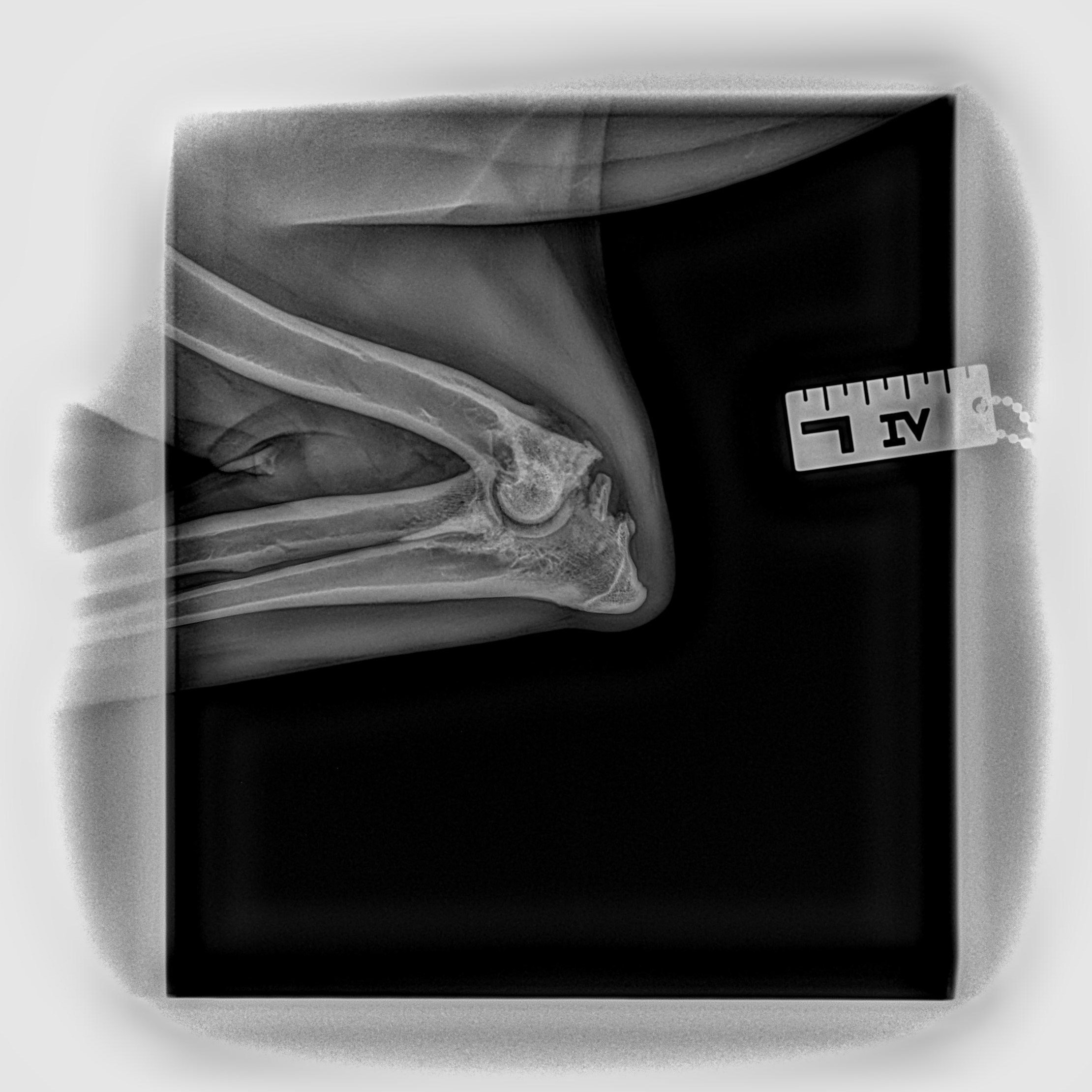Osteoarthritis in dogs and cats
By Dr Melyssa Cotton BSc BVMS
Arthritis is an extremely common condition that affects most animals at some stage in their life. The signs that your pet is struggling often start slowly and usually get worse as time goes on. While arthritis is generally a condition affecting older animals, it can also be a problem in younger to middle aged younger animals who have congenital joint abnormalities.
Signs that your pet may be suffering from painful arthritic joints include:
Stiffness and slowness when getting up from their bed
Limping
Trouble walking up stairs or when jumping
Dragging toes when walking
A change in the way they walk or sit
Crying or snapping when touched even gently
Not wanting to participate in usual activities
Cats may have urinary accidents if access to their litter is difficult or causing pain
How is osteoarthritis in pets diagnosed?
Conclusive diagnosis can only be made on x-ray however our experienced vets will get a strong suspicion that your pet may be suffering from arthritis based on the signs you see at home and their exam of your pets joints. They will use this information to help decide with you whether x-rays are needed before treatment.
How is osteoarthritis in pets treated?
Osteoarthritis pain in our pets is treated using a ‘multi-modal’approach. This means we use a combination of treatment tailored to the individual to get the best outcomes.
Weight management
Keeping pets at an ideal weight throughout their life has major benefits to their joint health as they age. If they have already been diagnosed with arthritis, they will find it easier to move and get up from resting if they are carrying less bodyweight. Keeping a leaner bodyweight can also help slow down the progression of arthritic disease.
Exercise moderation
As arthritis progresses, dogs will need to have exercise tailored to their capabilities. Usually this means reducing the length and frequency of their walks however some low impact exercise is still important to keep their joints from becoming stiff. If you notice you pet is regularly stiff or limping after exercise, this is a sign to reduce the distance you walk with them and stop high impact exercise such as chasing the ball or running long distances. Swimming is an excellent activity to support joint health without too much strain.
Joint supplements
There are many products on the market. At Progressive Vet Care we like to keep it simple for our clients by keeping a small range of high quality products that we know work. We use 4cyte which comes in both a granulated or liquid form that is added to food. The active ingredient of this product is green lipped mussel which is a naturally derived anti-inflammatory and very effective in pets suffering the milder effects of arthritis.
Pentosan polysulfate sodium (PPS) injections
Also known as cartrophen, pentosan or zydax.
A course of injections given once weekly over 4 weeks. It promotes joint health and reduces inflammtion to improve mobility and comfort. The course is typically repeated every 6-12 months depending on your pets needs.
Immunotherapy injections
Known as Beransa in dogs and Solensia in cats.
Cutting edge medical technology whereby the inflammatory chemicals within arthritic joints can be bound to relieve pain and ongoing inflammation. Injections are given once a month for as long as needed.
Non-steroidal anti-inflammatory (NSAID) medications
Very effective pain relief medications usually reserved for patients with advanced arthritis and significant daily discomfort. Long term use make the kidneys work harder so our vets will recommend regular blood and urine tests to check your pets kidney function.
Cannabinoids (CBD oil) in dogs and cats
There is increasing scientific evidence to show that using cannabinoids in cats and dogs to treat arthritic pain are every effective at improving their quality of life. We source our CBD oil from an authorised veterinary supplier and our doses are based on veterinary studies. This drug is especially safe to use for patients who have existing liver or kidney disease. They have no psychoactive effects (no chance of your pet getting high or hallucinating!).
If you are worried that your pet may be suffering the effects of arthritis, please book an appointment with one of our vets to discuss options for diagnosis and treatment.
Patient profile: Soda
Soda is a 7 year old lovable dog, who first came in to see us when she starting limping on her front leg. Her owner told us that she noticed Soda was limping most days but was especially worse after she had come home from a run at the park and after sleeping. When our vets examined Soda, they noted that her elbows were quite stiff when flexed and felt thicker (larger) than a normal elbow. To confirm our diagnosis, we took x-rays which showed she has a large amount of elbow arthritis. Our vets were then able to formulate a long term treatment plan which included joint supplements, cartrophen and Beransa injections as well as anti-inflammatory pain medication for her more painful days. Unfortunately arthritis is a long-term progressive disease which means Soda will need to have her pain managed for the rest of her life.




